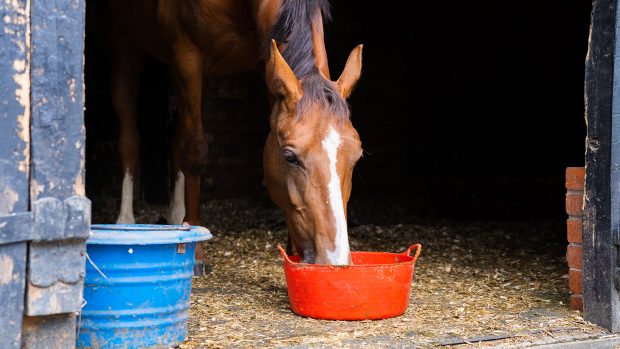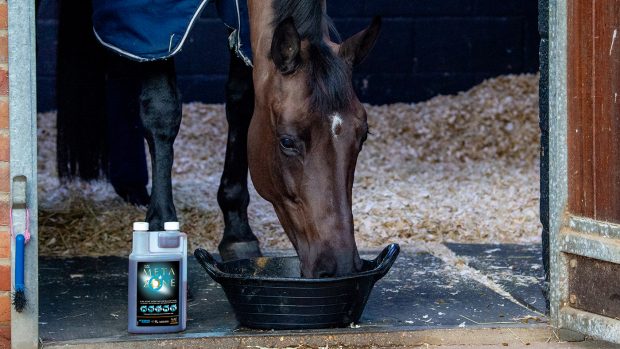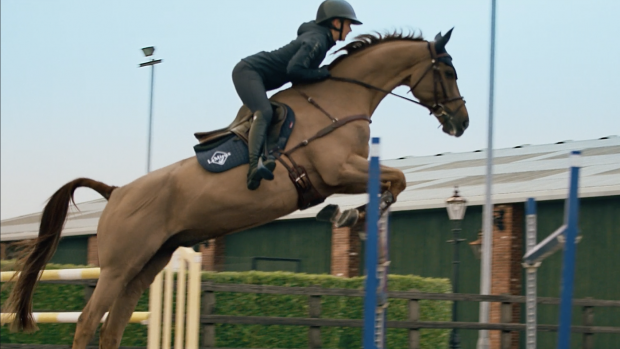Promotional Feature with KBIS
Preparing for a three-day event can be quite daunting, with so much to remember aside from your dressage test! To help ensure your event goes as smoothly as possible international event rider Alice Pearson has shared some of her top tips for a three-day event. Alice has many years of experience competing international events; she was the best British rider at the Junior Europeans in 2005 and went on to compete successfully at several high profile events, including going clear around both Badminton and Burghley.
Tip one – Lists
Go through in your head what you will need for every day, from schooling on the first day to each competition day and write it all down. Write it well in advance as you will suddenly remember things you need at 4am! Simple things like a quarter sheet (if it is raining or freezing cold) or an extra bridle (if you need to work your horse in in the morning so that your pretty dressage bridle stays clean for the test) are really useful. Don’t forgot your boot polish.
Tip two – A wheelbarrow is essential
Bring a wheelbarrow to take to the cross-country finish. Be well prepared on cross-country morning and get your wheelbarrow down to the finish so that you can wash your horse off straight after cross-country. Water is usually supplied so pack your wheelbarrow the night before or first thing in the morning with the usual things like buckets, sponge and a sweat scraper. I also love an Equi-N-ice cooling rug and bandages as they are simple and easy to put on and do not slip whilst walking back to the stable. Remember your headcollar and a drink for the rider too! The wheelbarrow can then be used to take all the tack straight back to the lorry.
Tip three – The trot-up
For the trot-up make sure you wear shoes or boots you can easily run in! White jeans can look very smart, but make sure you do not get them dirty before you present your horse to the ground jury. It is easy to look at the forecast and think “Oh, it’ll be raining” only for the sun to make a surprise appearance when you haven’t ironed your shirt so be prepared for all weather eventualities.
Tip four – Ice
If you have space for a freezer in the lorry it is a godsend. If you can get hookup not only can keep all your food in there for your stay, but you can also keep your cool boots and ice in there for putting on any knocks or bangs after cross-country. Ice is also useful for putting on tired legs the night after cross-country in preparation for showjumping the next day. I use tubigrip folded up and then fill with ice. This can be useful on banged knees as well as tendons. It is also good to have some spare for a well-earned post cross-country G&T!
Tip five – Watch others
If you are not one of the first to go, then watch some other riders. In all three phases it is vital to see how the course is riding. You may have walked that combination on four strides but actually it is riding better on three or five. Get out early and have another course walk whilst its being ridden; go and watch some dressage tests (mainly to make sure you really know the test!). If you are first to go cross-country and cannot watch anyone else, trust your instincts and be brave; after all you know your horse better than anyone else. Don’t listen too much to people who do not know you or your horse well, but try to walk the course with people who do know you both. Take all the advice you can, but remember you are here to enjoy it and you know your horse the best.
Tip six – Insurance
It is most important to remember that you are there to enjoy yourself, but it is worth making sure you have suitable insurance in place in case the weekend doesn’t go to plan. Check that your public liability insurance covers the activity you are doing so that you are protected in case your horse kicks a person or a car in the warm up or gets loose on the cross-country course and injures someone in the crowd, remember horses can behave differently when not in their usual environment. With that in mind insuring your horse should be considered just so that you can cover any veterinary fees if they are injured or fall ill whilst you are away. I think it is also important to have personal accident insurance too as if I was signed off work, I would need to pay someone else to help with the horses.
In conjunction with Horse & Hound Festival of Eventing sponsor KBIS, there will be a demo with Alice Pearson on the Saturday evening of the event, open to everyone to attend. It will be sure to offer you some valuable training advice, so do make sure you come along.



